| Abstract | The duration and severity of an infection depends jointly on the traits of the infecting parasite and the immunological response of the host. Parasitic molecular mimics are characterized by a high degree of similarity to naturally occurring host peptides. Infection with a molecular mimic can result in various autoimmune diseases in the host; for example, Campylobacter jejuni infections have been linked to Guillain-Barre syndrome. Host selection against autoimmune disease may cause the immune system receptors that destroy molecular mimics to be eliminated from the immune repertoire. This motivates the question, why are all parasites not molecular mimics? We formulate an infection-autoimmunity model to determine how molecular mimicry affects the fitness of parasite strains when the total reactivity of the parasite in the space of possible immune receptors is constrained. We determined that selection favors parasites with epitopes that react strongly with a subset of host receptors and not at all with other receptors. Selection for incomplete mimicry occurs when hosts with autoimmune diseases generate relatively few secondary infections. As the number of secondary infections from autoimmune diseases increases, higher degrees of molecular mimicry are selected. Depending on the prevalence of self-reactive receptors this may result in a higher prevalence of autoimmunity, chronic infections or both. Medical interventions to prevent some autoimmune diseases are currently under development. We discuss how such therapies may effect parasite selection for molecular mimicry. |
|---|

